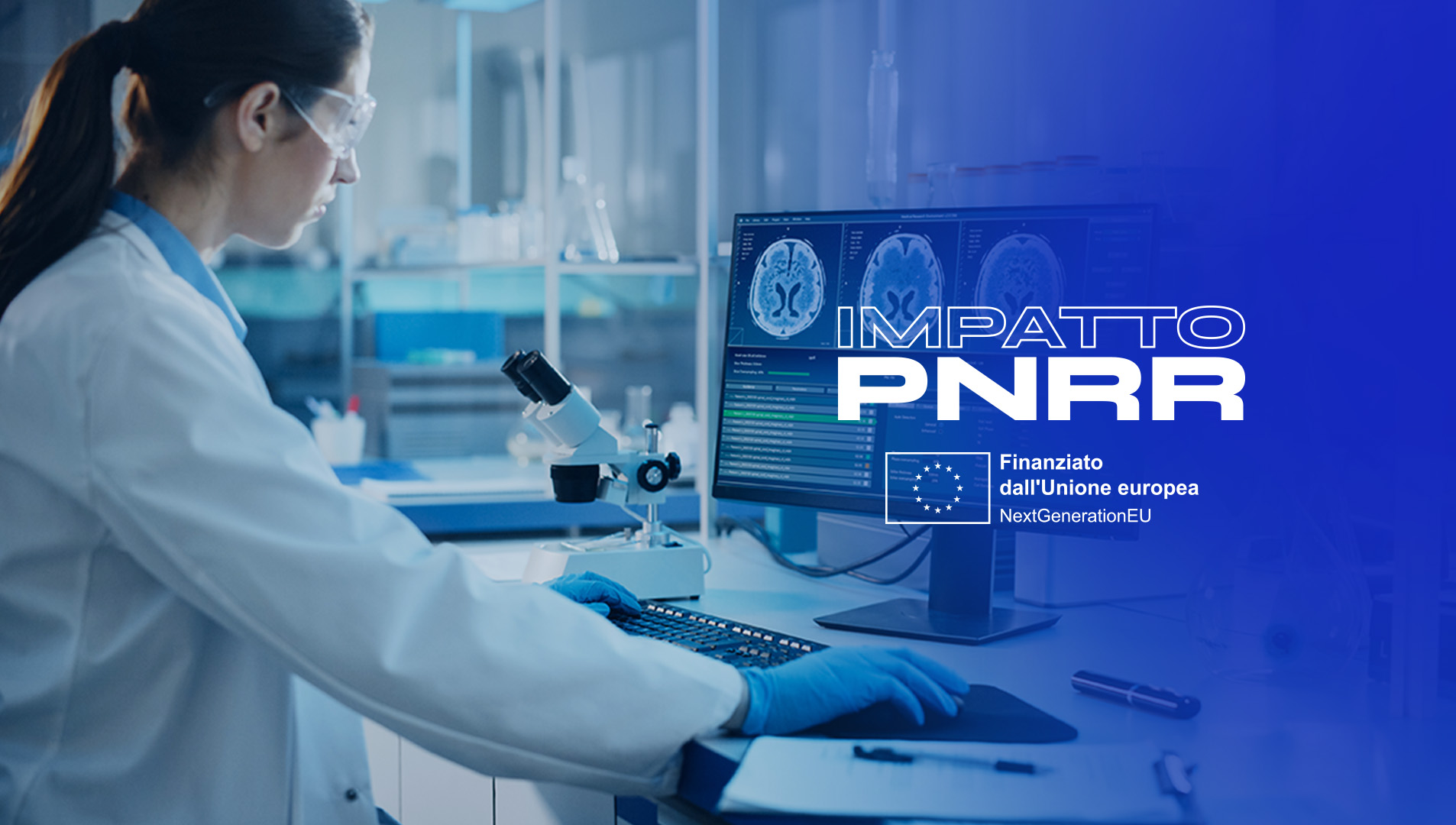
D34Health: digital and biological “twins” for precision and predictive medicine
The “Digital Driven Diagnostics, prognostics, and therapeutics for (4) sustainable Health care - D34Health”, a major research project financed thanks to the National Plan for complementary investments to PNRR, for research initiatives for innovative technologies and paths in health and care, has just recently started in Rome.
The project proposed by the University of Rome – La Sapienza and coordinated by the Fondazione D34Health to develop new solutions for the diagnosis, monitoring and therapy of five reference pathologies: colon cancer, liver and bile duct cancers, central nervous system cancer, type one diabetes and multiple sclerosis. By using a data mining approach, the researchers will develop digital and biological models to study the diseases, i.e., “digital twins” of patients and “biological twins” of organs or tissues. “Twins” because they will be created with characteristics as close as possible to those of the patients, to be used in wide-ranging tests that will provide reliable results without the use of animal experimentation. These models will be developed from the collection of health data from a large number of cases and different hospitals, which will then be analysed through artificial intelligence algorithms and integrated with data collected through innovative technologies such as wearable devices, sensors and organ-on-chips.
The project, which kicked off in these days with the kick-off meeting at the University of Rome – La Sapienza, is based on the cooperation and integration of the skill sets of different public and private players. The Foundation set up to co-ordinate it is in fact composed of 28 partners including public and private universities, research institutes and companies, and carries out activities to enhance research on digital technologies in the health sector, through a sophisticated data mining process, in order to improve diagnosis, monitoring and treatment.
Politecnico – thanks to the work of Professor Fabrizio Candido Pirri of the Department of Applied Science and Technology-DISAT, scientific head of the project for the University – is a founding member of the Hub that coordinates the project and will develop “Biological and bioengineered in vitro models” by coordinating Spoke number 4 of the project, together with the Consiglio Nazionale delle Ricerche-CNR (National Research Council), the San Raffaele Hospital, the University of Turin, the Candiolo IRCCS and many companies. The Politecnico will contribute to the creation of “Wearable technologies, sensors and biomarkers” for biological models, providing its technical and technological expertise for the development, testing and validation of biological models.
In vitro models facilitate the development of personalised methods for precision medicine and the improvement of current technologies will allow the development of new therapeutic approaches, thus helping to bring research from the lab to the patient and to develop a more personalised medicine.
The total budget of the D34Health project is 126.5 million Euro, of which the Politecnico di Torino will have 15.87 million Euro at its disposal.
“Participation in the D34HEALTH project and the coordination of the Spoke dedicated to the development of in vitro models of oncological and metabolic pathologies is a great opportunity and recognition for a large number of researchers from the University – comments Professor Pirri, head of the project for Politecnico – D34HEALTH is one of the four projects that the MUR and the Ministry of Health have decided to launch for a global investment of 500 million Euro to enable new ICT technologies to make the Italian healthcare system more efficient. Together with the research activities, the Politecnico di Torino will have the opportunity to set up in the Turin area, in collaboration with the University of Turin, the Candiolo IRCCS, INRIM, and the AIZOON company, a research infrastructure dedicated to the development of ICT hardware technologies dedicated to the oncological, neurological, and metabolic sectors. We are talking about more than 10 million Euro that, together with the investments of the individual partners, could change the research landscape in the biomedical sector in Turin.”